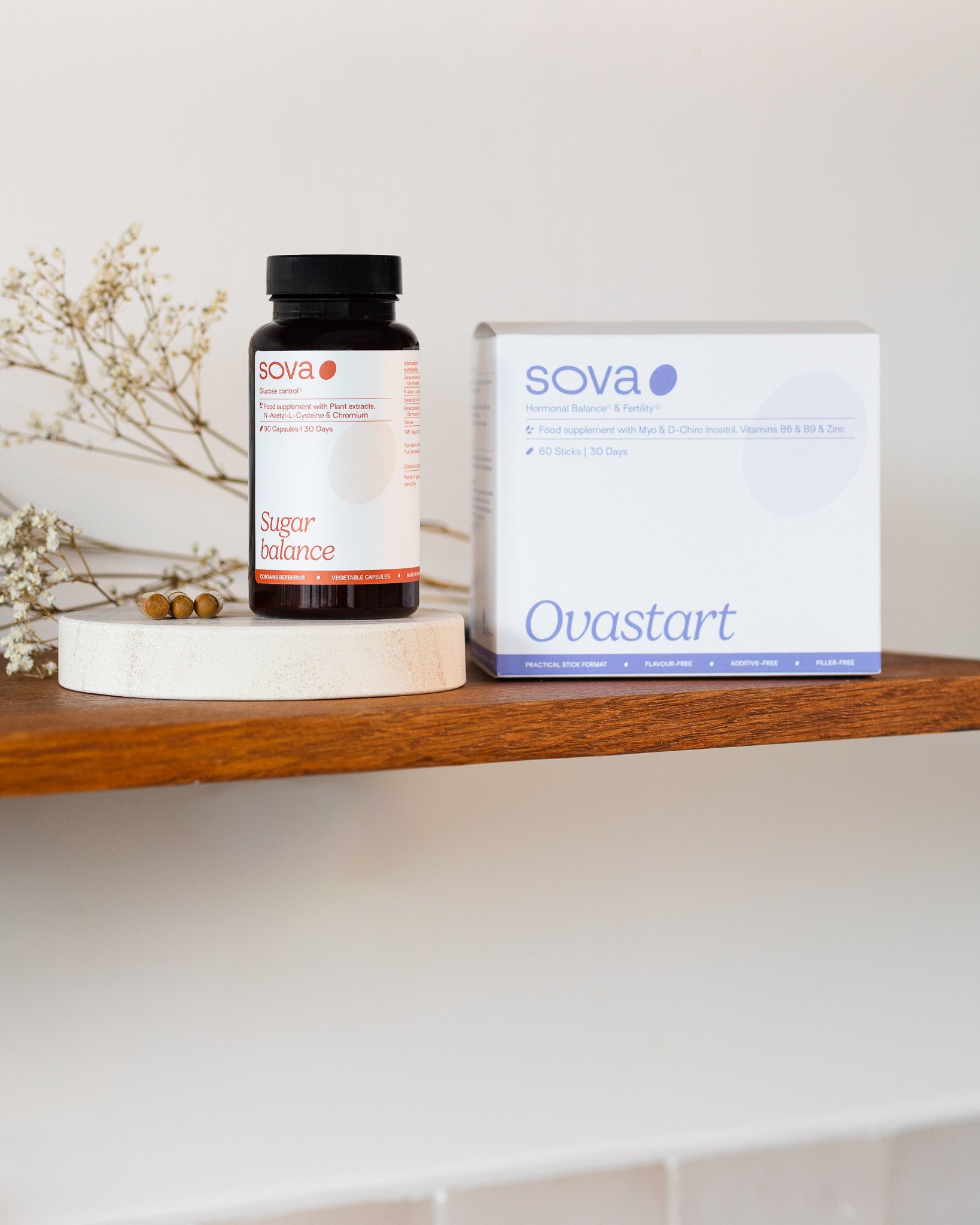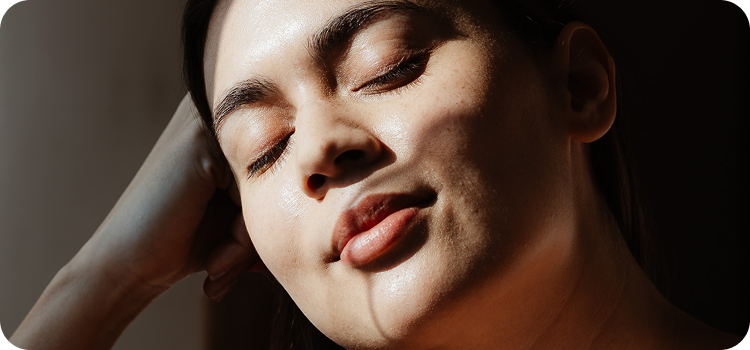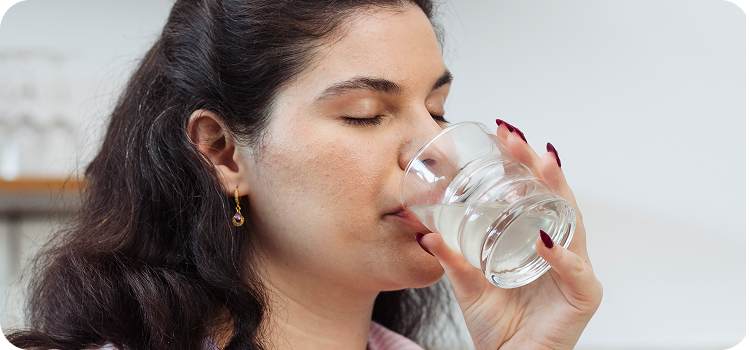Table of contents
In a previous article, we explained that it is not possible to completely cure PCOS (except in very specific cases — you can read more in Can PCOS Be Cured?).
The good news is that there are many medical and natural treatments available to help you better manage your PCOS symptoms on a daily basis. Let’s take a closer look at the main options you can consider.
Can PCOS be cured?
To be clear: no treatment currently offers a permanent cure for PCOS. However, both medical and lifestyle solutions can significantly improve your quality of life. Remember: always discuss your choices with your doctor and never stop a medical treatment without medical advice.

Medical treatments for PCOS
The contraceptive pill
The contraceptive pill is often the first option prescribed by gynecologists for women with PCOS. For many, it appears to be the “ideal” solution: when the pill suits you, symptoms often disappear quickly.
The pill essentially puts your menstrual cycle on pause. Without hormonal fluctuations, you may no longer experience acne, excess hair growth, or irregular periods. However, it is important to remember that these are not real periods, but rather withdrawal bleeds caused by the drop in synthetic hormones.
The pill does not cure PCOS — it temporarily masks symptoms. When you stop, whether to try for pregnancy or simply because it no longer works for you, symptoms often return.
👉 Even if you are on the pill, it can be helpful to support your body with a balanced diet and micronutrient supplements, as oral contraceptives are associated with higher risks of vitamin and mineral deficiencies.
Metformin
Metformin is a medication originally used to treat type 2 diabetes, but it is now commonly prescribed to women with PCOS.
Up to 70% of women with PCOS have insulin resistance, which can lead to type 2 diabetes later in life. Metformin may reduce this risk by improving insulin sensitivity. However, it does not directly cause weight loss. For best results, it must be combined with diet and lifestyle changes.
For women with irregular cycles, Metformin has shown promising results in restoring ovulation after 4–6 months, especially when combined with Clomid® (an ovulation-inducing medication). However, studies show limited effects on acne and hirsutism.
⚠️ Long-term Metformin use may reduce vitamin B12 levels, which are crucial for nervous system health and fertility. If you are taking Metformin, consider B12 supplementation (especially if you are vegetarian or vegan) after discussing with your doctor.

Anti-androgens
When the pill alone isn’t enough to control acne or excess hair growth, your doctor may prescribe anti-androgens, either alone or combined with estrogen.
The most common is cyproterone acetate (found in Androcur®), but long-term use has been linked to higher risks of benign brain tumors (meningiomas). Safer options are usually combined estrogen/anti-androgen treatments such as Diane35 or Minerva, which primarily target acne and hirsutism while also preventing pregnancy.
⚠️ These treatments are not suitable for everyone, especially if you suffer from migraines, have a history of blood clots, or smoke. Always check with your doctor.

Natural remedies for PCOS
Nutrition and PCOS
Nutrition is the foundation of PCOS management, whether or not you are taking medication. PCOS is strongly linked to chronic inflammation and insulin resistance, so dietary choices have a direct impact on your symptoms.
Some key guidelines:
-
Focus on anti-inflammatory foods (whole foods, omega-3 rich fats, lean protein, seasonal vegetables, and fiber).
-
Keep your blood sugar stable throughout the day (limit refined sugar, favor foods with a low to medium glycemic load).
👉 For extra support, supplements like Omega-3 fatty acids and Inositol (the main ingredient in Ovastart) are well-researched for PCOS.
⚠️ Improving your diet should never mean restriction or guilt. Find a balance that feels sustainable for you.
Sleep, stress, and physical activity
These lifestyle factors play a huge role in PCOS management.
-
Sleep: Women with PCOS are more prone to sleep disorders, which can worsen insulin resistance and hormonal imbalances. Good sleep hygiene (bedtime routine, reducing screens, etc.) is key.
-
Stress: Chronic stress increases cortisol and androgens, aggravating PCOS symptoms. Techniques like yoga, journaling, or breathing exercises can help.
-
Exercise: Regular physical activity improves insulin sensitivity and hormonal balance. Focus on gentle activities like walking, yoga, swimming, or cycling, and avoid over-exercising, which can have the opposite effect.
Supplements for PCOS
Supplements can be an excellent ally in managing PCOS symptoms. The most studied is Inositol, which has proven benefits on cycle regulation, insulin sensitivity, and testosterone levels.
Other natural ingredients may help depending on your symptoms:
-
Berberine: supports insulin regulation.
-
Zinc: beneficial for skin and hormonal balance.
-
Adaptogenic plants: for stress and cycle support.
At SOVA, we created targeted solutions such as Ovastart (for cycles, energy, skin) and Sugar Balance (for cravings, insulin, metabolism). Many women also combine them in the Balance Bundle for complete support.
👉 Not sure which supplement fits your needs? Take our PCOS quiz to get your personalized recommendation.

Combining medical and natural approaches
Medical and natural approaches are not mutually exclusive — in fact, they often work best together. For example:
-
If you are on the pill or Metformin, you can still support your body with good nutrition, gentle exercise, stress management, and micronutrient supplementation.
-
If you are not taking medication, you can broaden your approach with plants and supplements that directly target hormonal imbalance and insulin resistance.
⚠️ Be cautious: if a therapist ever advises you to stop a prescribed medical treatment, this is outside the scope of legal medical practice. Always keep your doctor involved in your decisions.
Final thoughts
Every woman with PCOS has a unique experience. The best treatment is the one that works for you, supports your lifestyle, and helps you feel better in your body. Whether you choose medical treatments, natural remedies, or a combination of both, the most important step is to stay informed and listen to your body.
👉 Have questions? Share them in the comments below or reach out to us directly — our team is here to help.
SOVA was created by two sisters with PCOS who wanted products that truly worked. Our formulas are developed in-house with women’s health and micronutrition experts, using ingredients backed by clinical studies and compliant with European regulations.
- Built by women with PCOS, we know the reality of the symptoms.
- Clinically studied, high-quality ingredients, including patented forms like Quatrefolic® and an optimal Myo-/D-Chiro Inositol ratio.
- Holistic support for hormonal balance, metabolic health, inflammation, mood and cycle regulation.
- Transparent, science-led formulas with no unnecessary additives.















